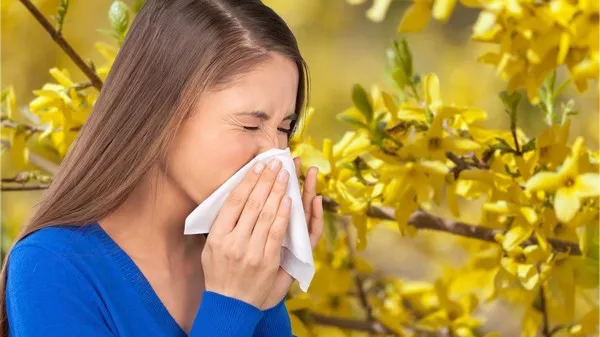For individuals with pollen allergies, the arrival of pollen season can bring a range of uncomfortable symptoms, including sneezing, itchy eyes, congestion, and coughing. Understanding when pollen season begins and ends is essential for managing these allergies effectively. In this article, we delve into the world of pollen allergies, exploring the factors that influence the start and end of pollen season, the types of pollen that trigger allergies, and strategies for coping with pollen allergies throughout the year.
1. The Role of Pollen in Allergic Reactions:
Pollen is a fine, powdery substance produced by plants as part of their reproductive process. For individuals with pollen allergies, exposure to specific types of pollen can trigger an allergic response. When inhaled, pollen allergens can cause the immune system to produce antibodies, such as immunoglobulin E (IgE), leading to the release of inflammatory chemicals that result in allergy symptoms.
2. Common Types of Pollen Allergens:
Different plants produce different types of pollen allergens that can trigger allergies in susceptible individuals. Some common pollen allergens include:
Tree Pollen: Tree pollen allergies are typically prevalent in the spring months and are triggered by pollen from trees such as oak, birch, cedar, maple, and pine.
Grass Pollen: Grass pollen allergies are most common during late spring and summer, with grasses like Bermuda grass, Timothy grass, Kentucky bluegrass, and ryegrass being significant culprits.
Weed Pollen: Weed pollen allergies are often prevalent in late summer and fall, triggered by pollen from weeds like ragweed, sagebrush, pigweed, lamb’s quarters, and plantain.
3. Factors Influencing the Start of Pollen Season:
Several factors contribute to the onset of pollen season, including climate, geographical location, and plant behavior. Warmer temperatures and increased daylight hours stimulate plant growth and trigger the release of pollen. The specific timing of pollen season can vary from region to region due to variations in climate, plant species, and local flora.
4. Early Pollen Allergens: Tree Pollen
Pollen season typically begins with the release of tree pollen. Different tree species release pollen at different times, resulting in varying start dates for tree pollen allergies. In general, tree pollen allergies are more prevalent in early spring, with different trees having their peak pollen release periods throughout the season.
5. Mid-Season Allergens: Grass Pollen
As tree pollen season winds down, grass pollen allergies come into play. Grasses tend to release their pollen in late spring and early summer, causing allergies during this period. The timing of grass pollen season can vary depending on the geographical location and specific grass species prevalent in the area.
6. Late-Season Allergens: Weed Pollen
Weed pollen allergies typically occur in late summer and fall. Ragweed, a common weed pollen allergen, releases its pollen in late summer and early fall, triggering significant allergic reactions. Other weed species may release their pollen at different times during the late-season period.
7. Extended Pollen Seasons: Cross-Reactivity and Climate Factors:
In some cases, extended or overlapping pollen seasons may occur due to cross-reactivity among allergens and climate factors. Cross-reactivity refers to the phenomenon where individuals allergic to one type of pollen may exhibit allergic reactions to similar allergens from other sources. Additionally, changing climate patterns, such as warmer temperatures and prolonged growing seasons, can extend pollen production and prolong the duration of pollen allergy seasons.
8. Pollen Counts and Allergy Forecasts:
Monitoring pollen counts and accessing allergy forecasts can provide valuable information for individuals with pollen allergies. Pollen counts measure the amount of pollen in the air, while allergy forecasts provide insights into expected pollen levels and allergy risk in specific areas. Checking pollen counts and forecasts can help individuals plan outdoor activities and take appropriate preventive measures.
9. Strategies for Coping with Pollen Allergies:
Managing pollen allergies involves a combination of avoidance strategies and symptom relief measures. Some strategies to consider include:
Minimize outdoor activities during peak pollen times, particularly on dry, windy days.
Keep windows closed and use air conditioning in both the home and car to filter out pollen.
Wear sunglasses to protect the eyes from pollen.
Take showers and change clothes after spending time outdoors to remove pollen from the body and hair.
Use allergen-proof bedding covers to minimize exposure to pollen in the bedroom.
Follow a prescribed treatment plan, including over-the-counter or prescribed medications, nasal sprays, and eye drops.
Consider allergen immunotherapy (allergy shots) for long-term management of pollen allergies.
10. Beyond Pollen Season: Managing Allergies Year-Round:
For individuals with allergies, managing symptoms extends beyond pollen season. Other allergens, such as dust mites, pet dander, mold spores, and certain foods, can trigger allergic reactions throughout the year. Identifying and minimizing exposure to these allergens, seeking medical advice, and developing an individualized allergy management plan can help individuals effectively manage allergies year-round.
Conclusion:
Pollen season, with its array of allergenic triggers, poses challenges for individuals with pollen allergies. Understanding when pollen season starts and ends, recognizing the specific pollen allergens that affect you, and implementing appropriate strategies for managing symptoms are key to mitigating the impact of allergies. By staying informed, taking preventive measures, and seeking professional guidance, individuals can navigate pollen season and enjoy a better quality of life, even in the presence of allergens.


